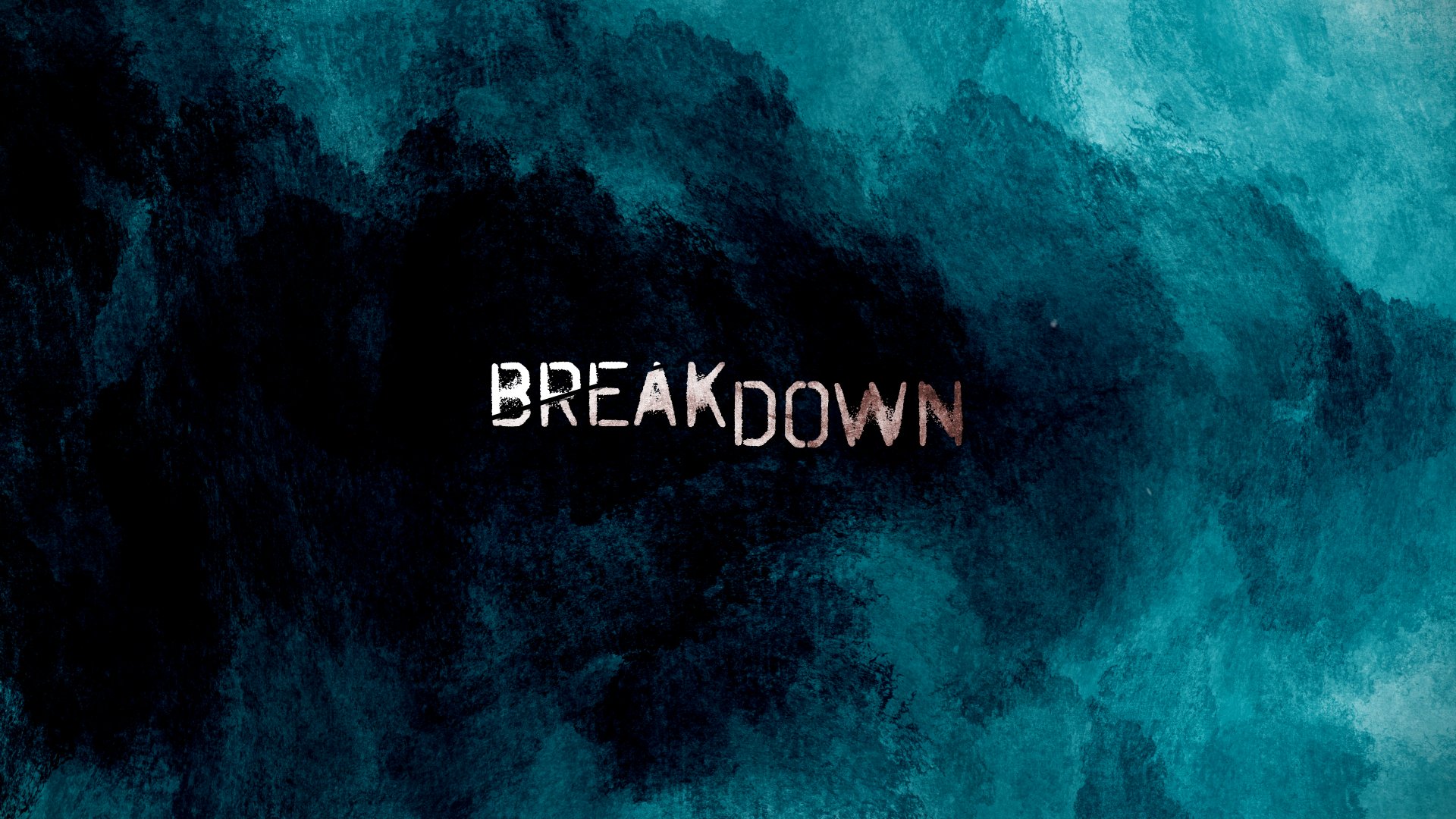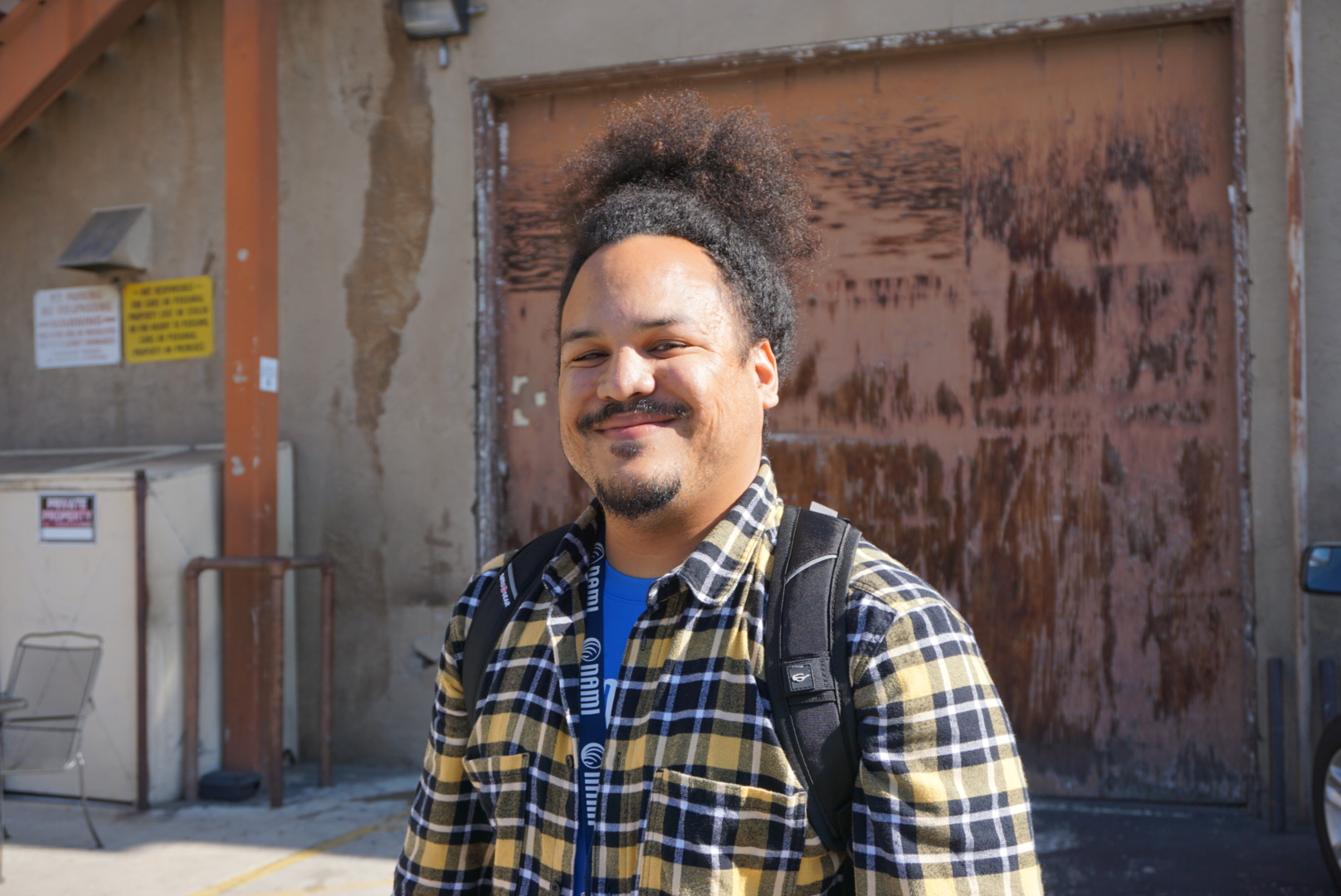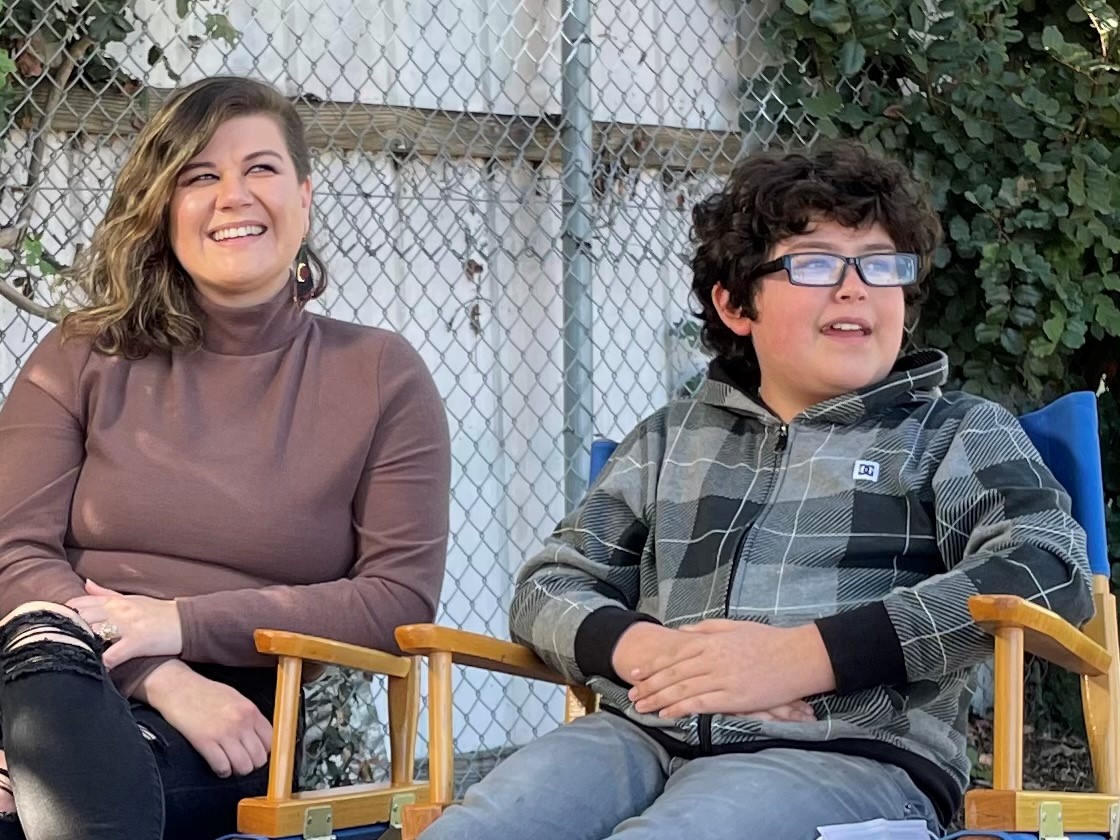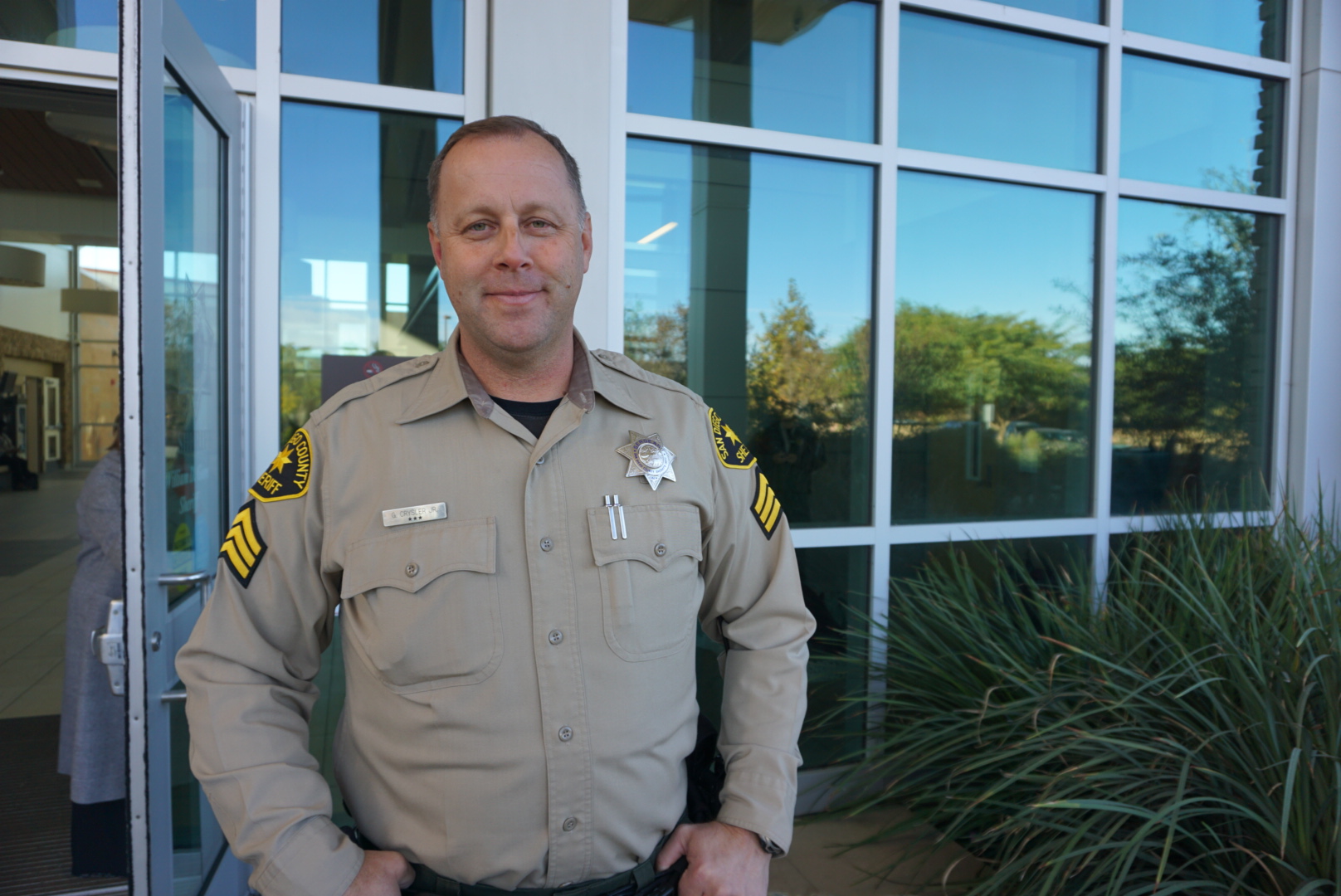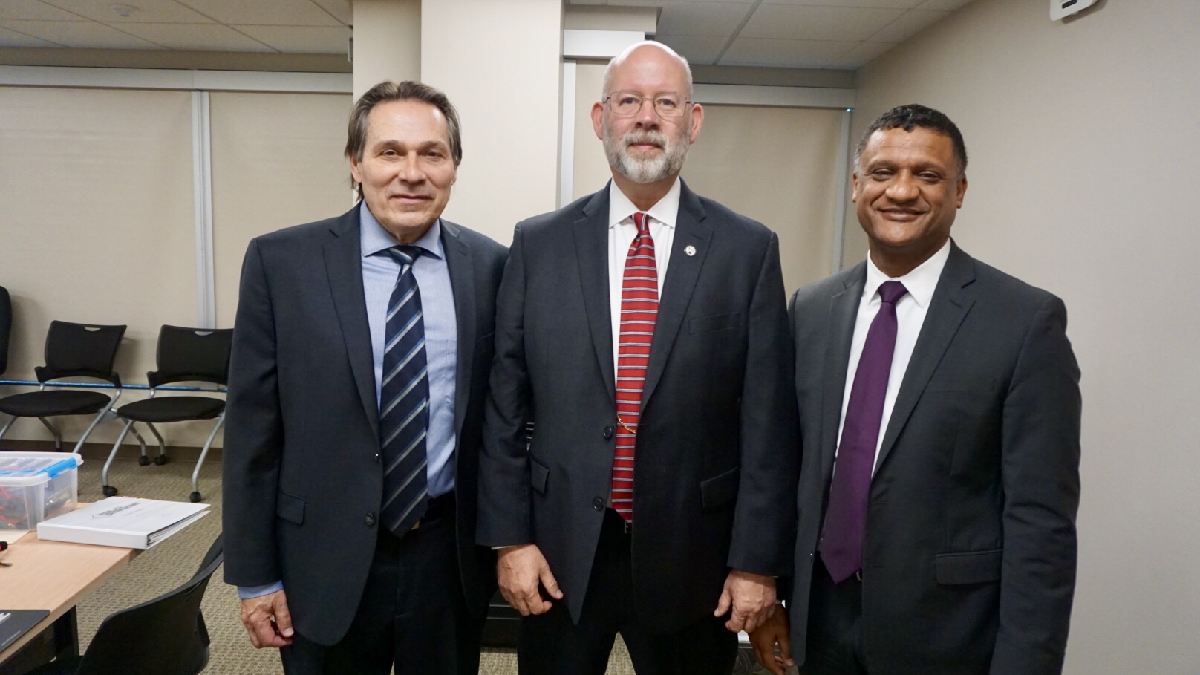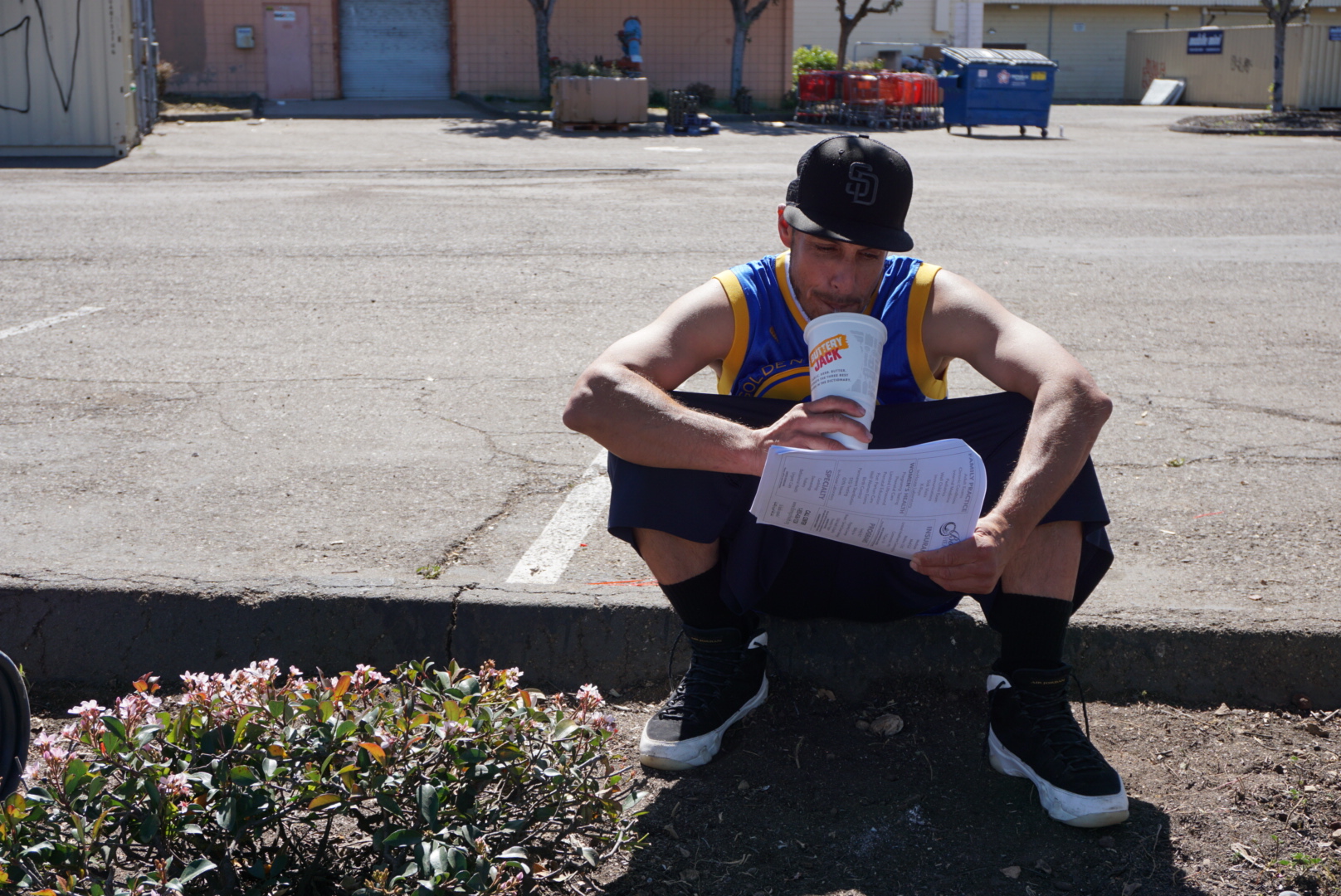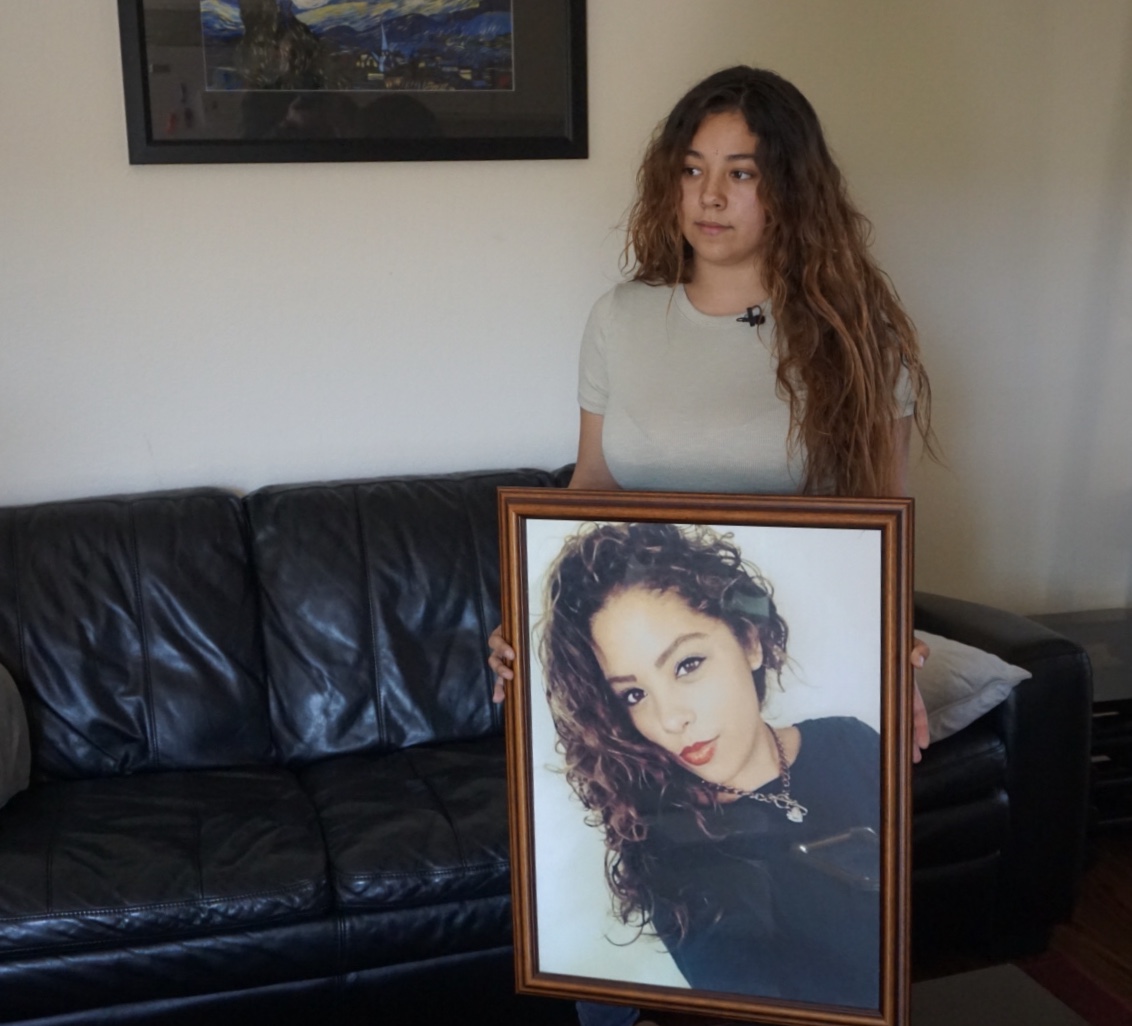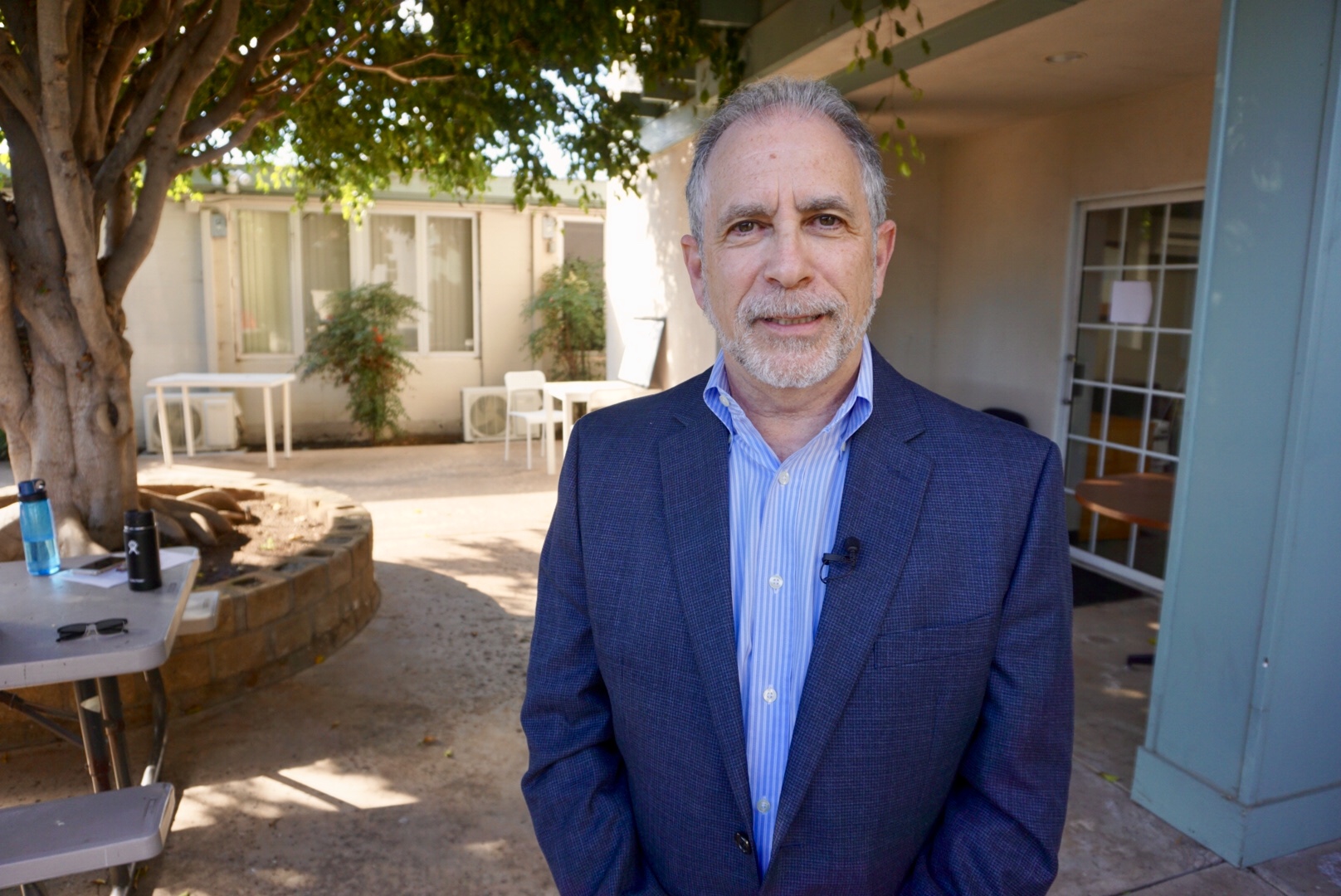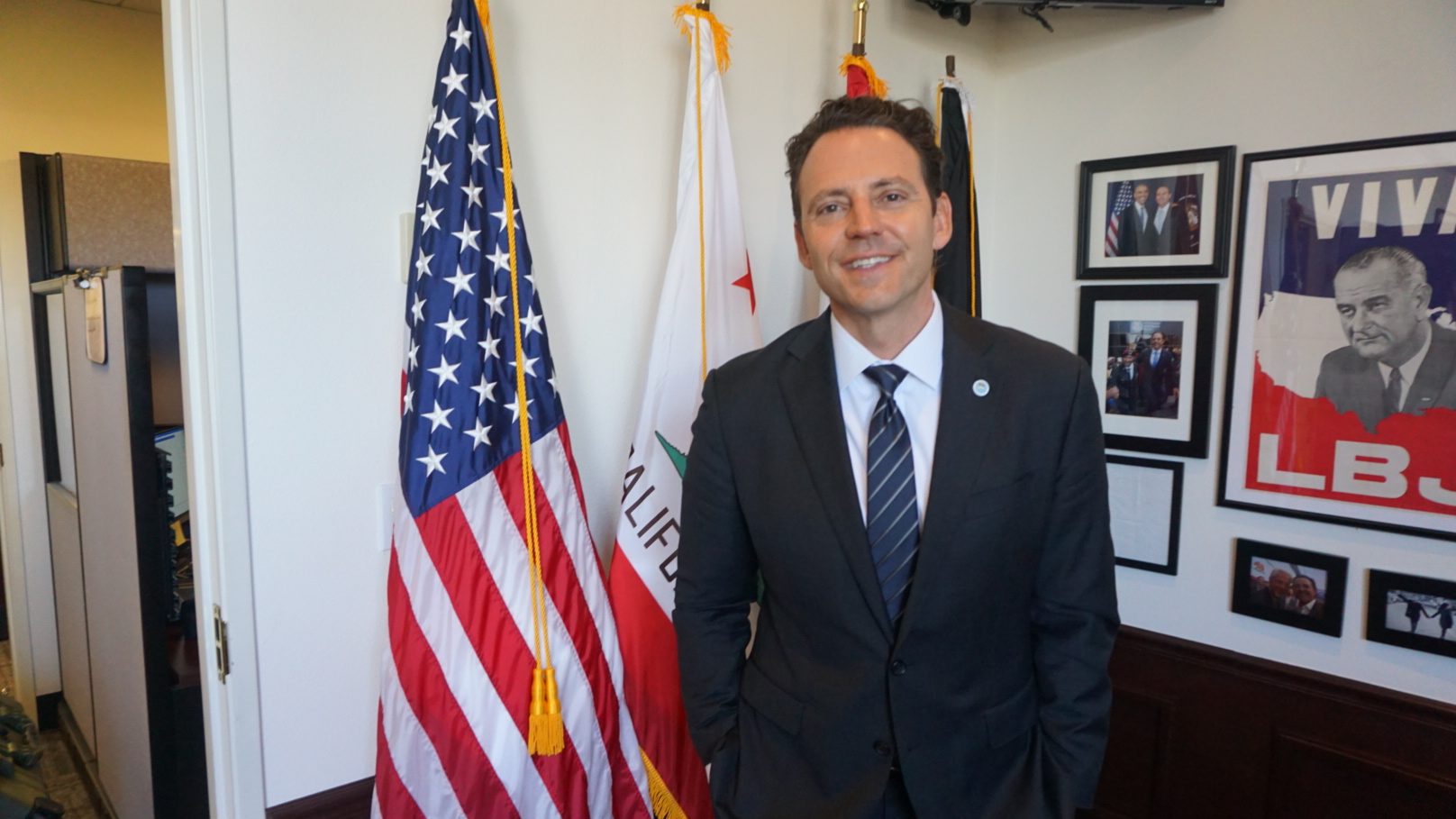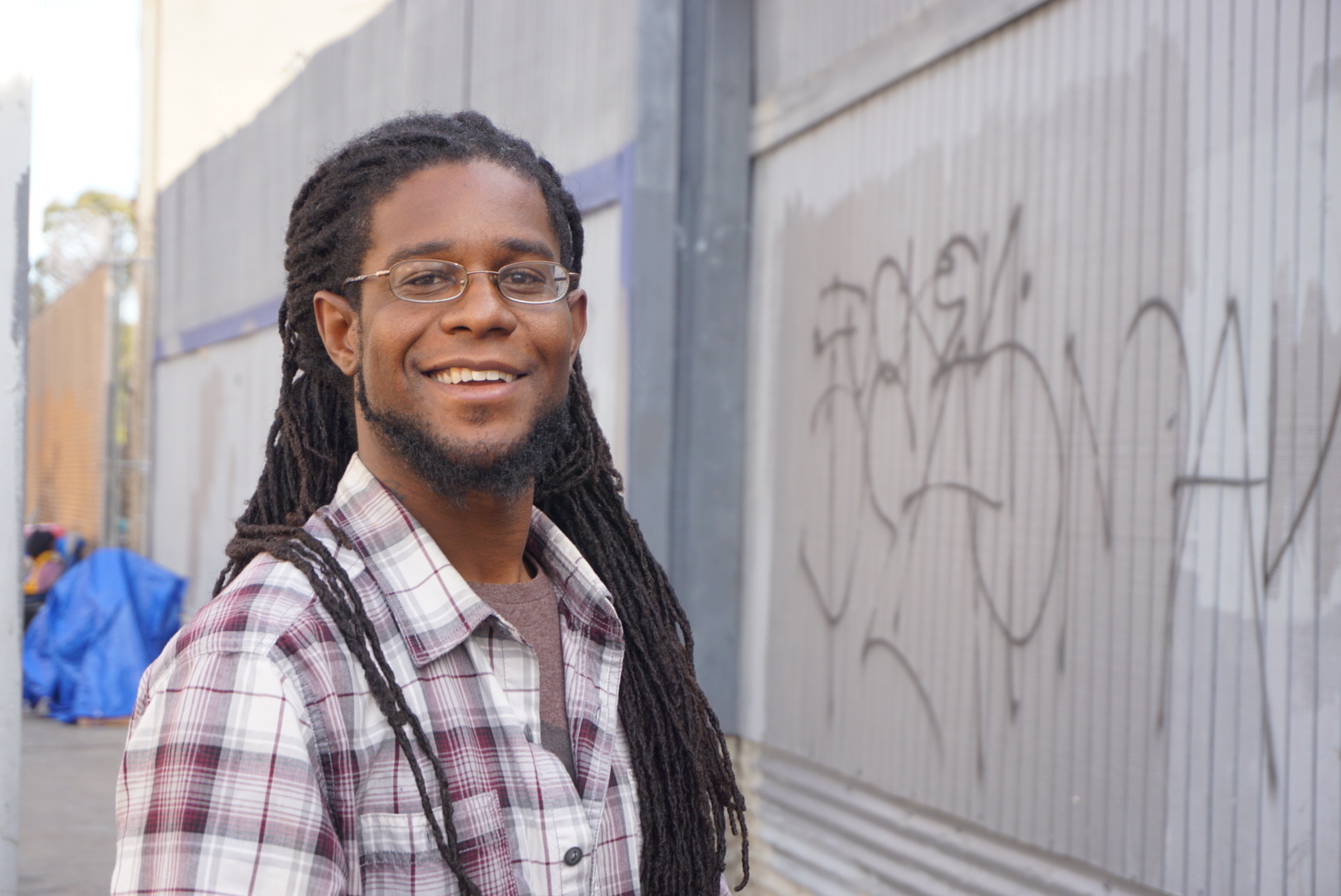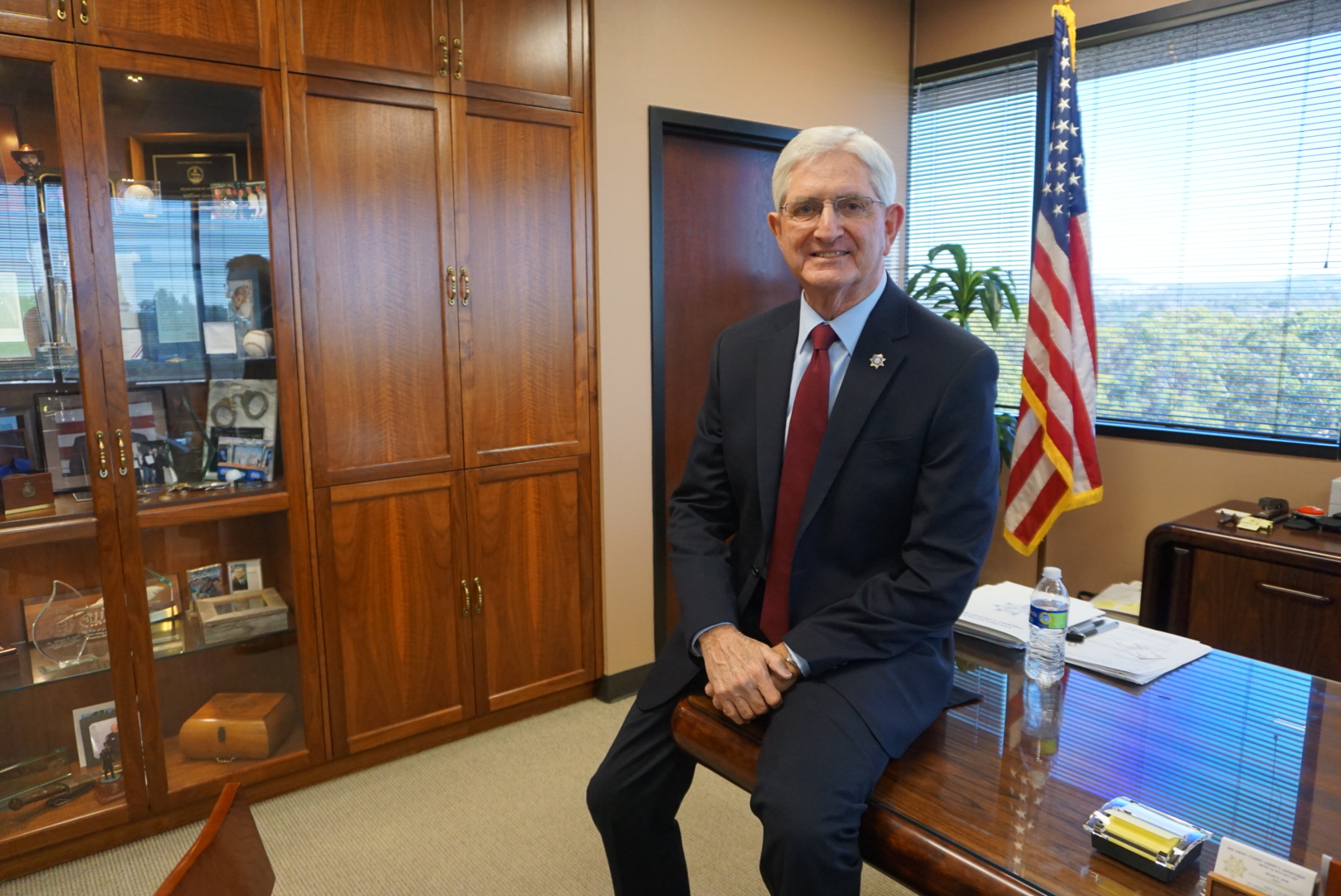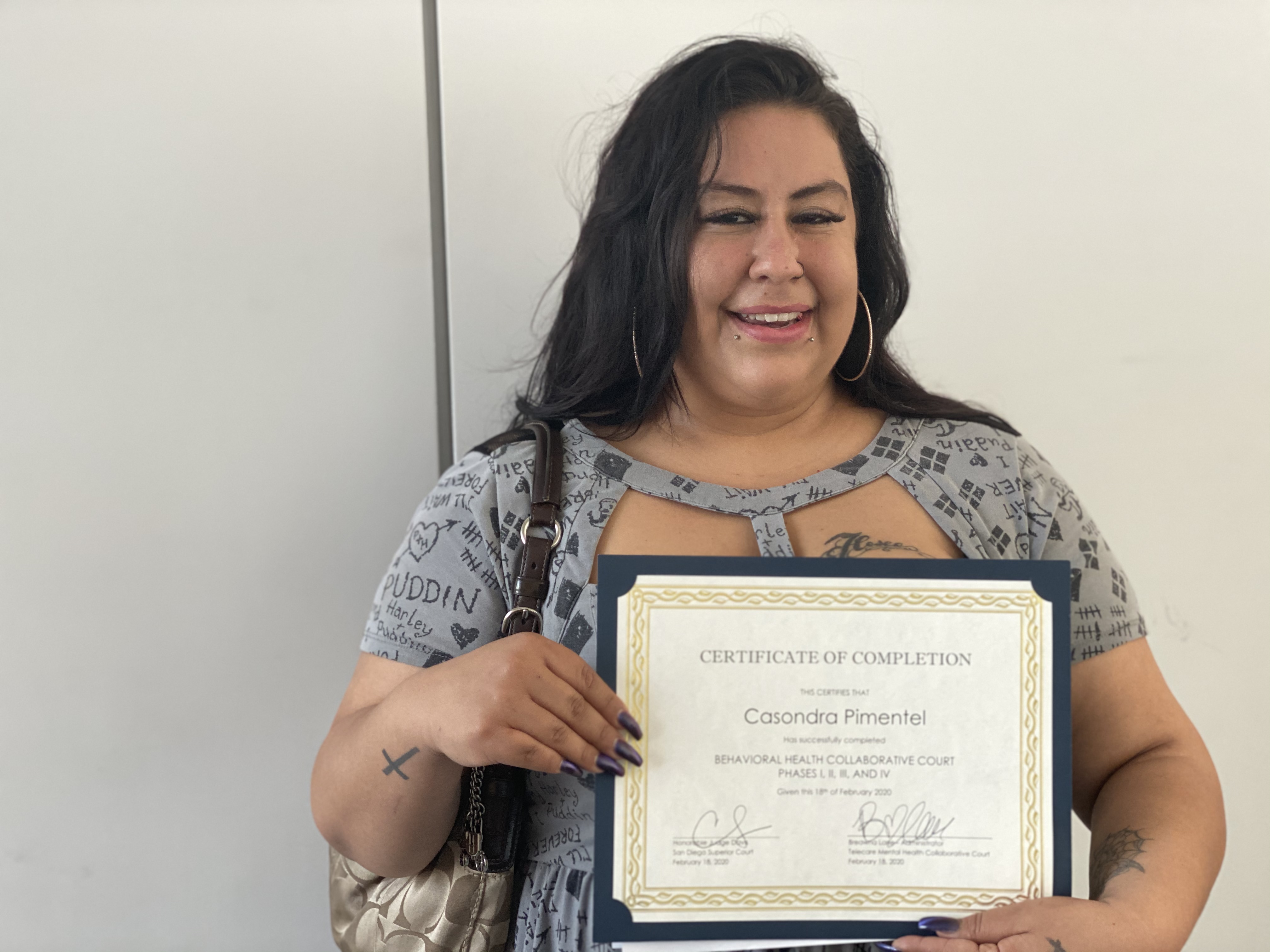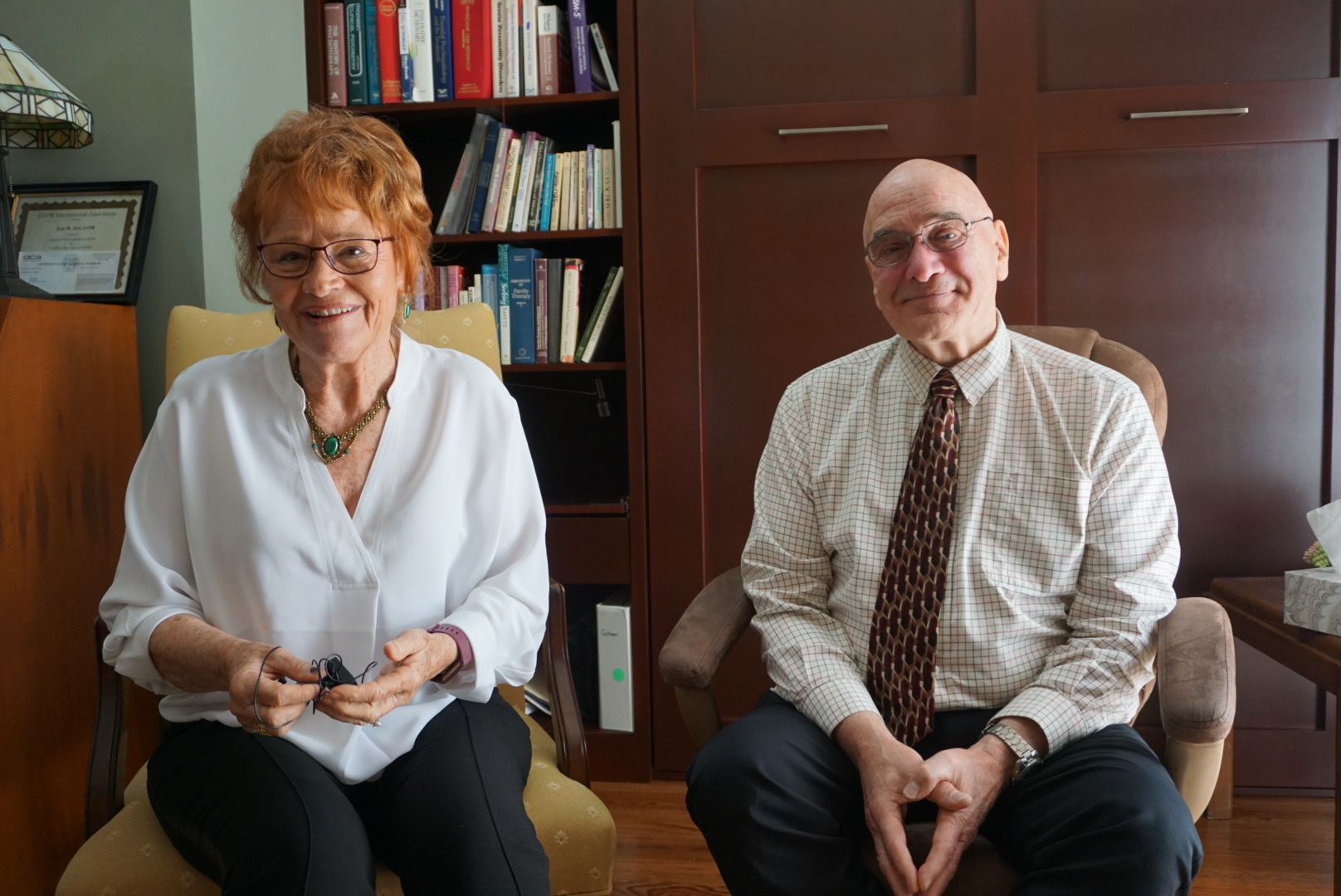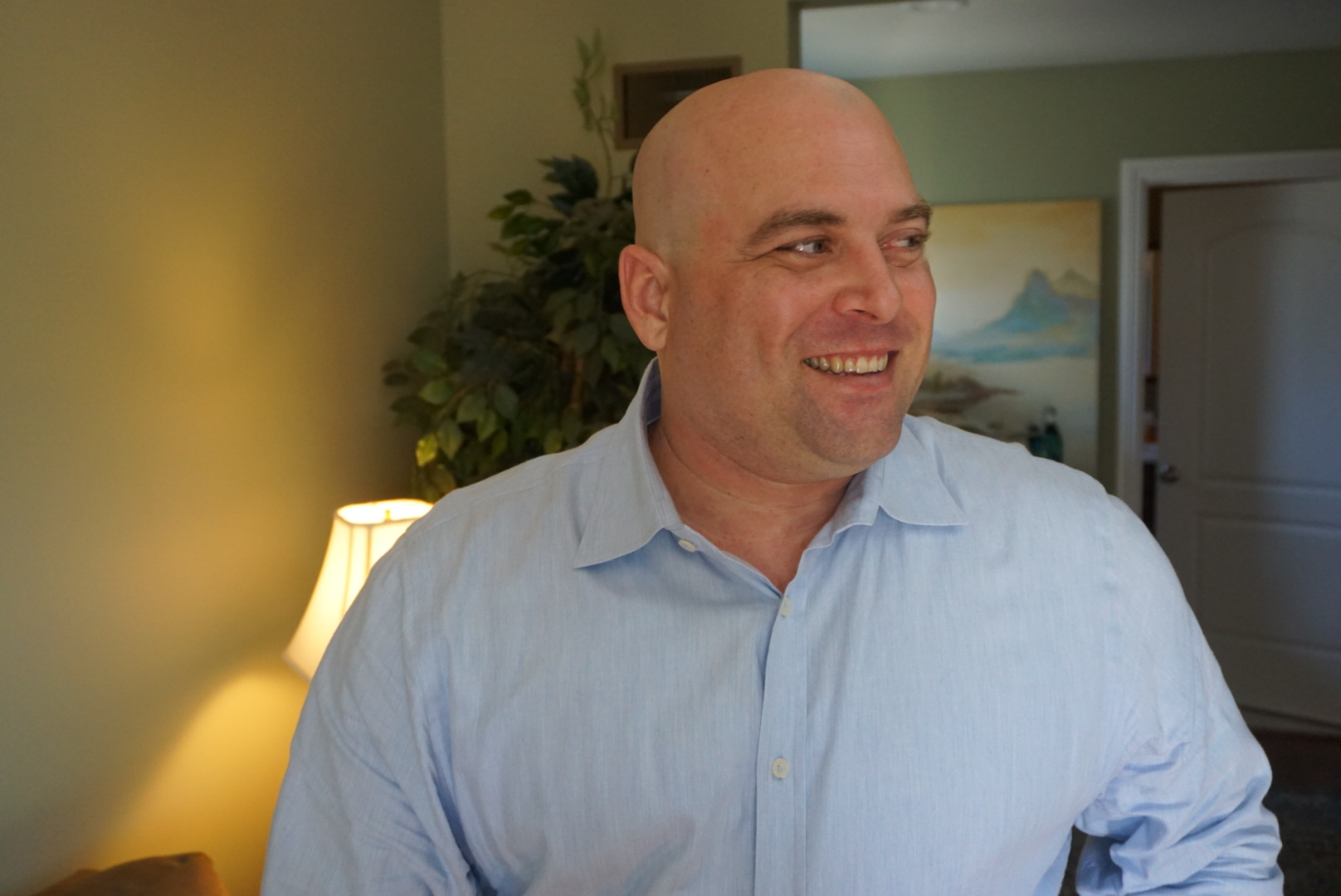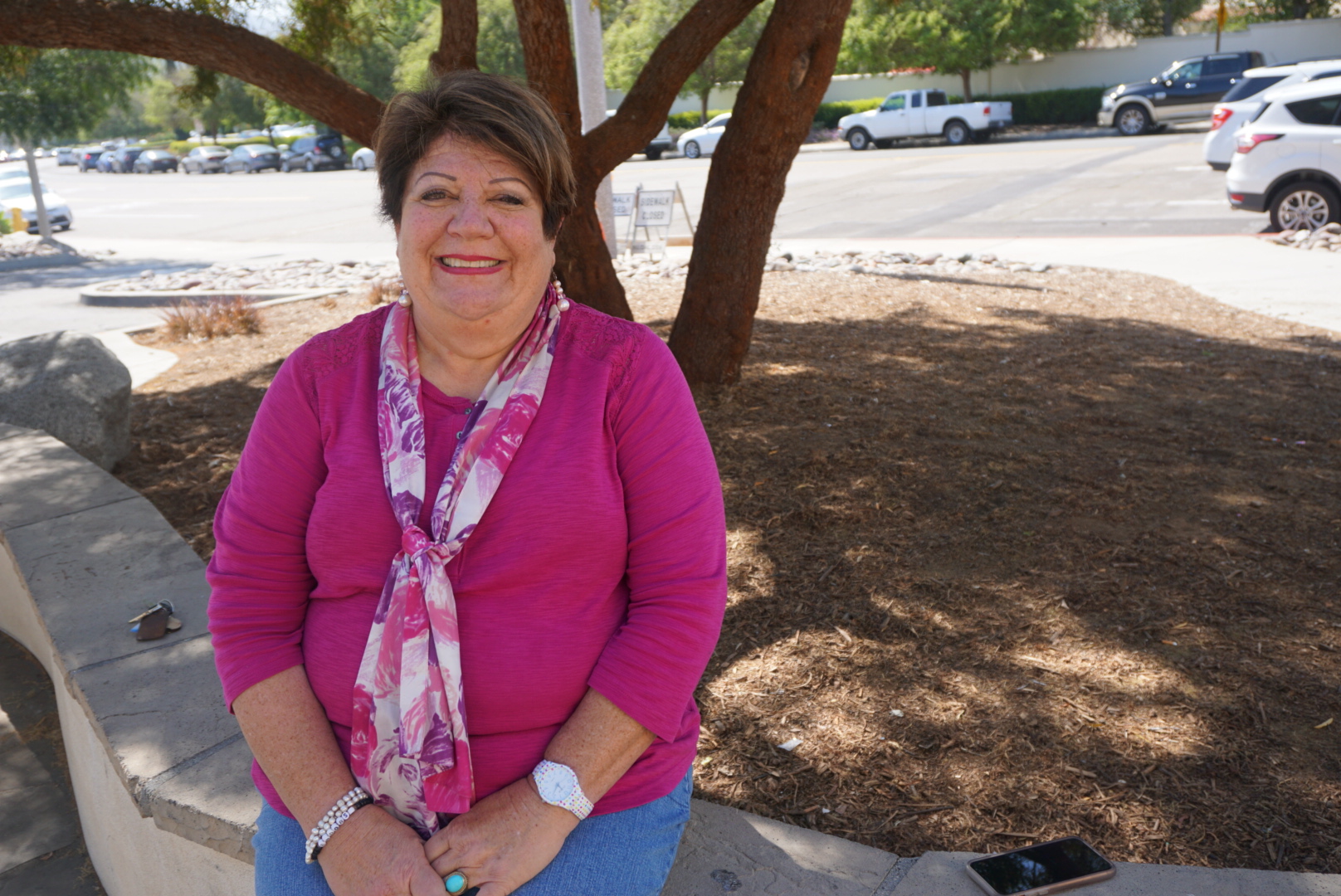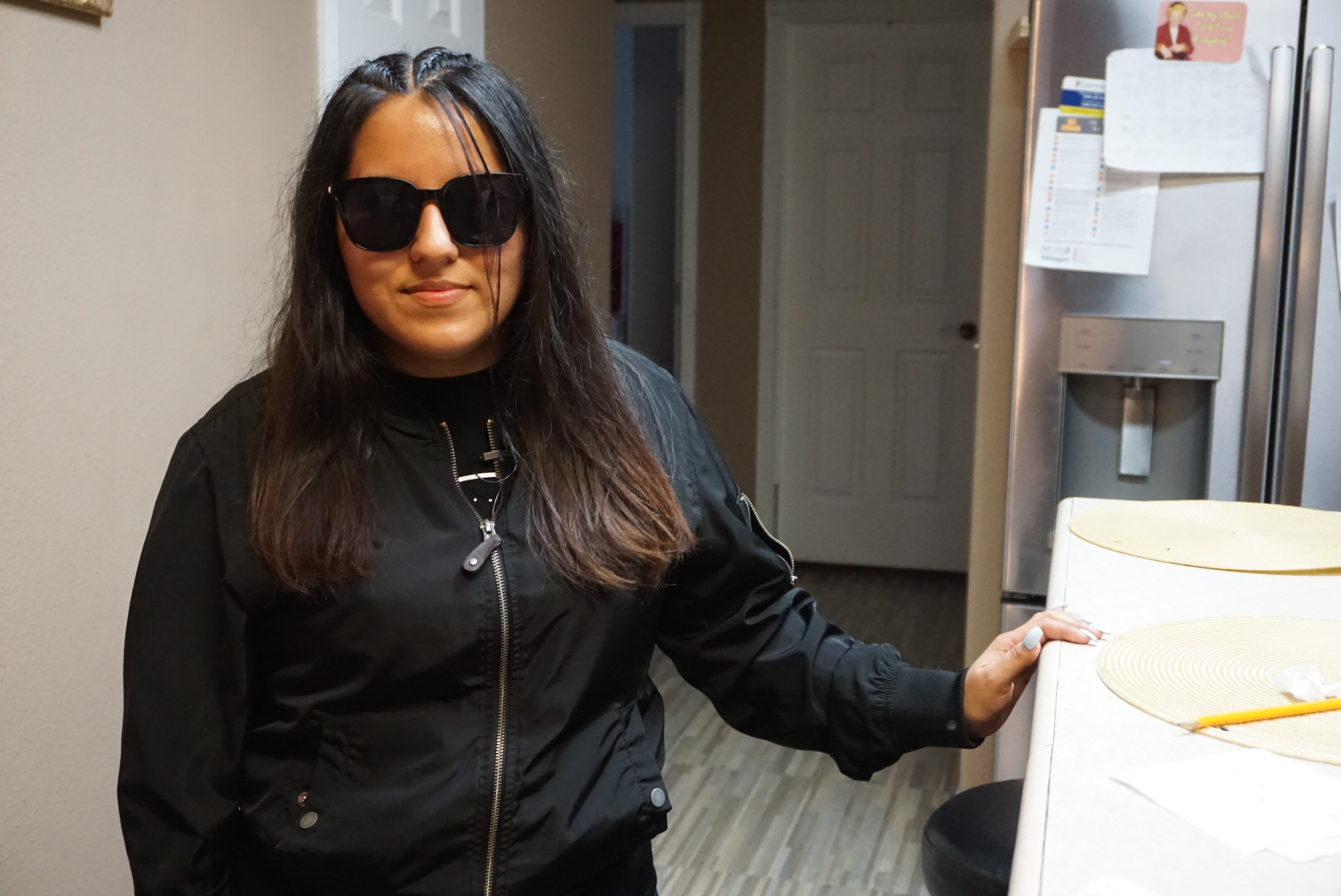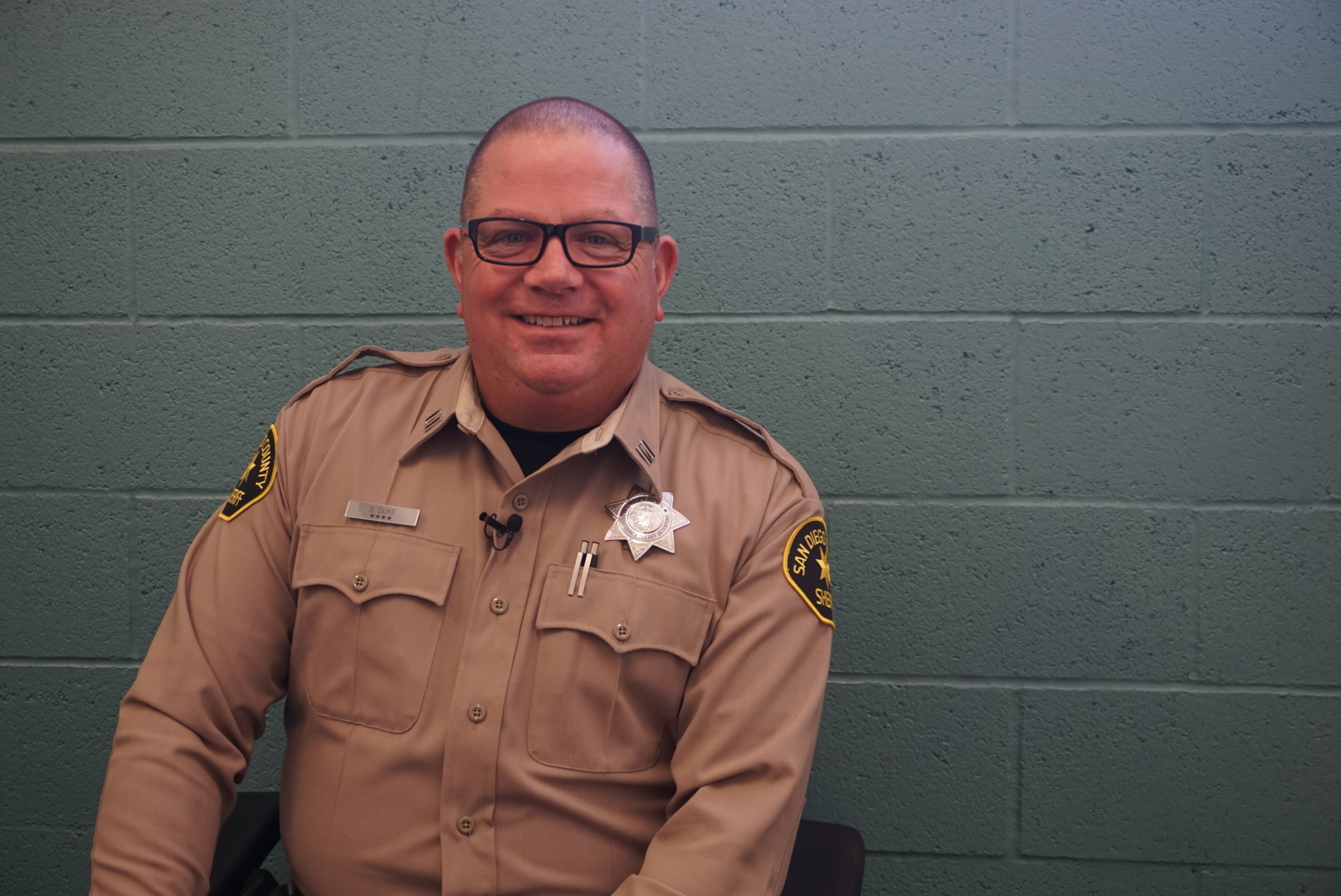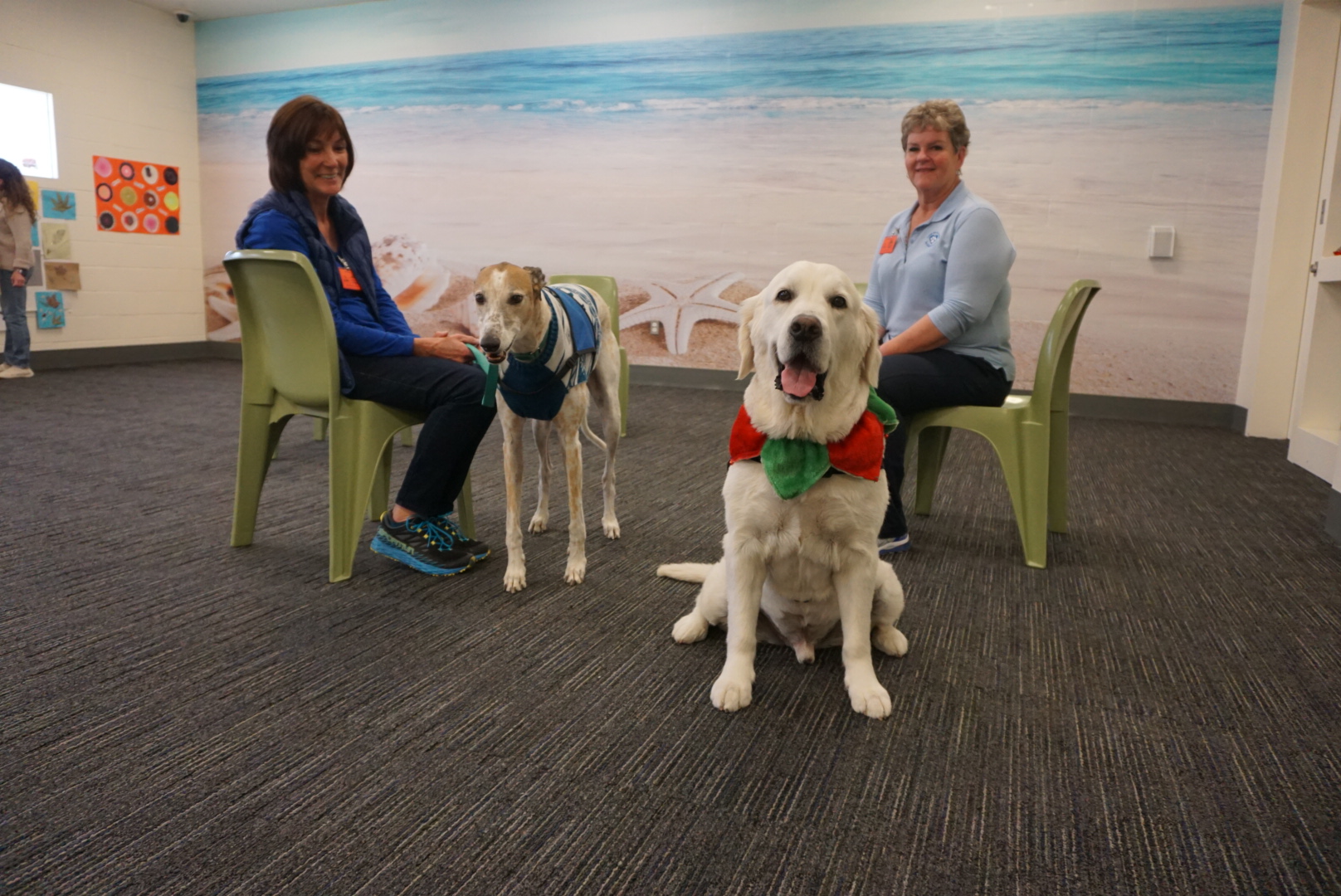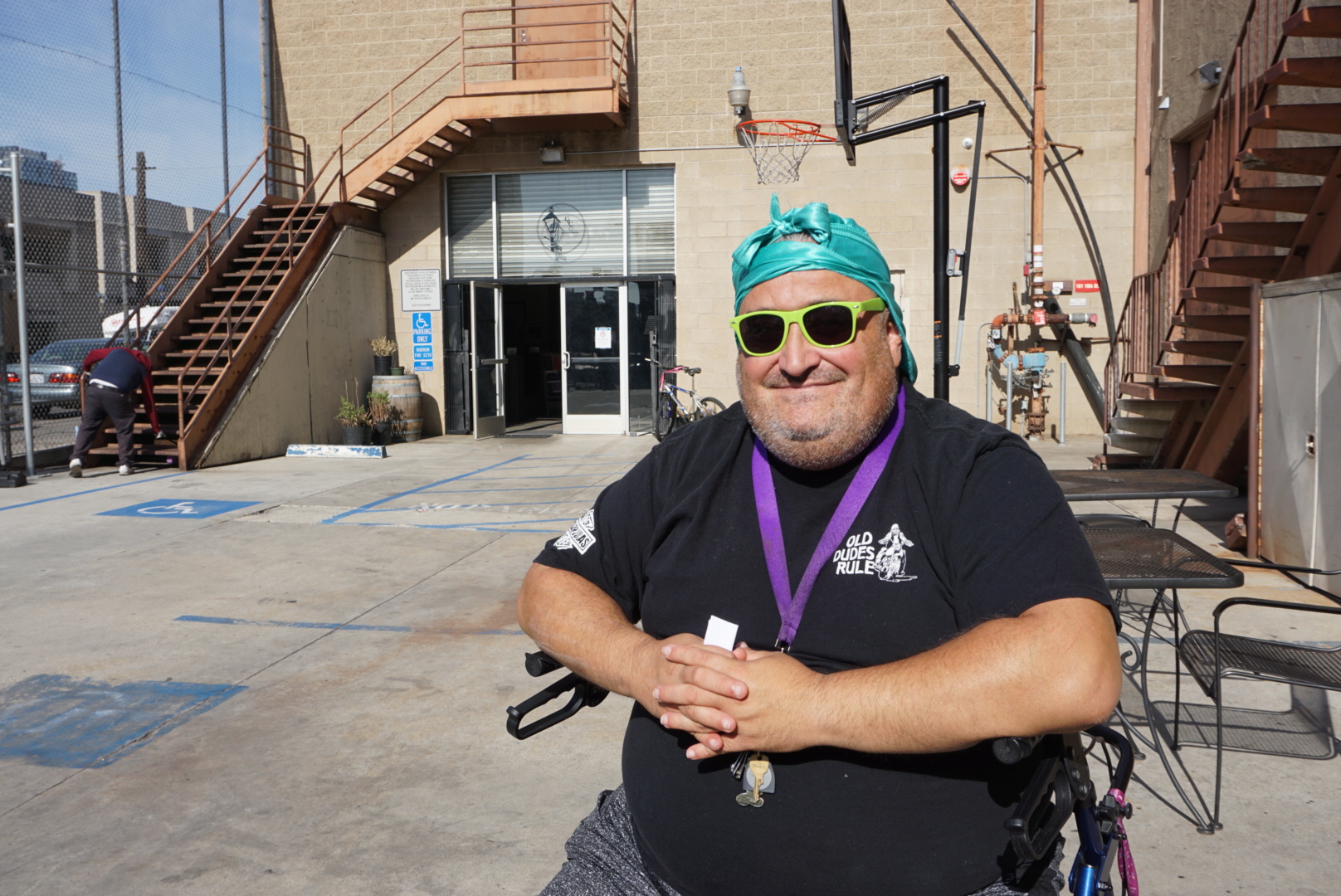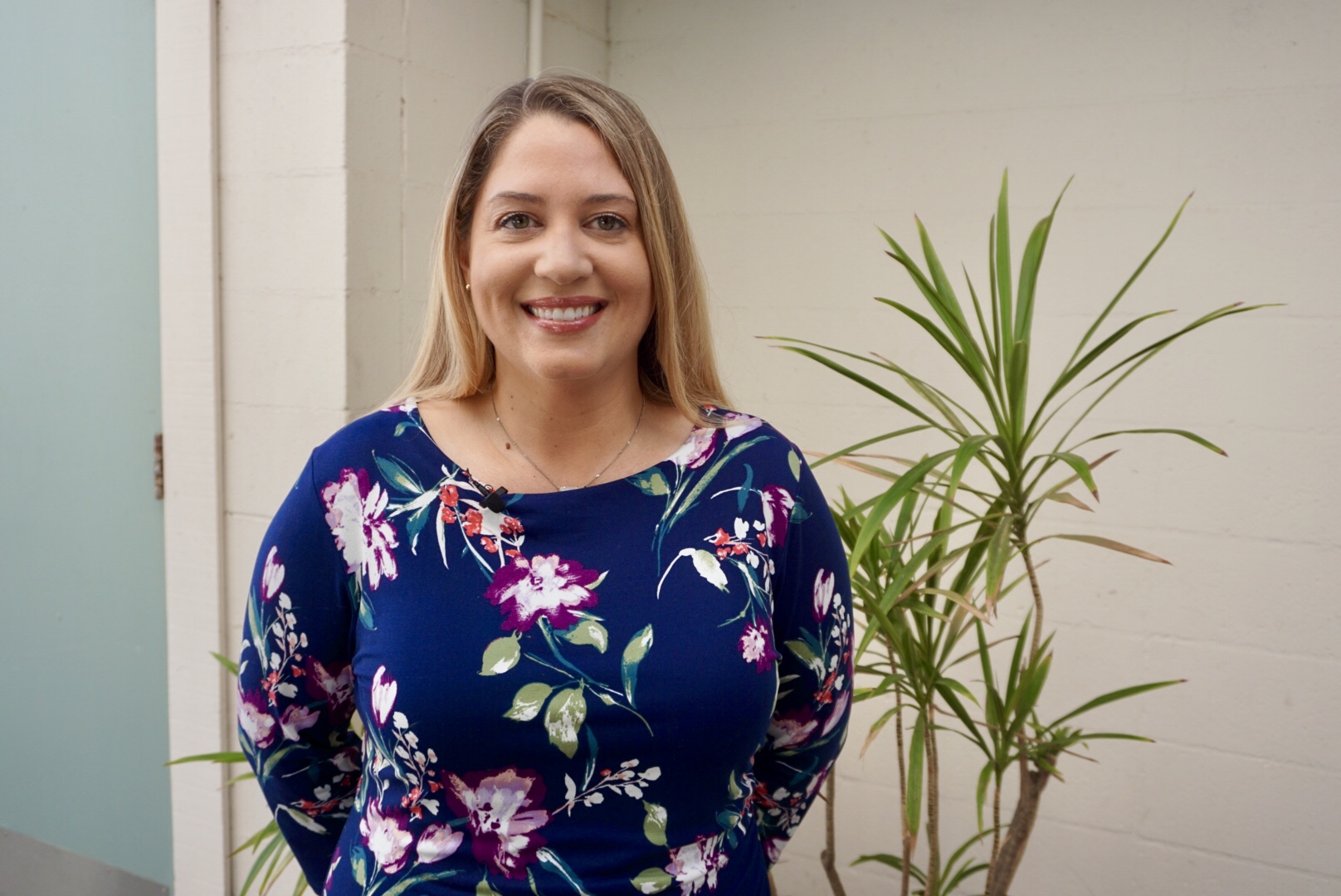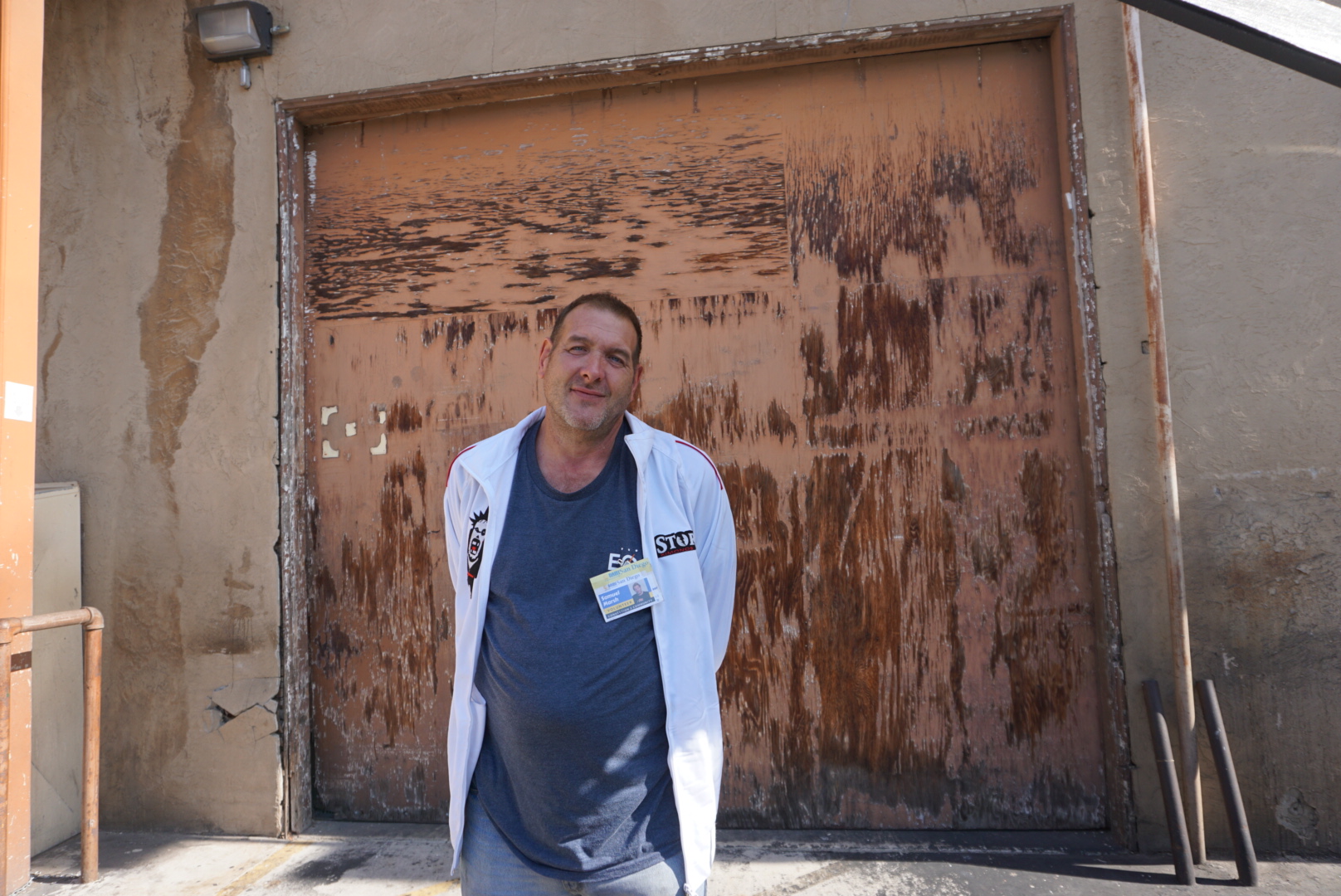A mom, struggling to find the mental health care her son needs. A sister, heartbroken after her twin faced daunting mental health challenges. A family, desperate to navigate the system and find early intervention for their children. They are people we met during our investigation into what experts tell us is a mental health care crisis in San Diego. These are the stories of these San Diegans, as they try to break the stigma of mental health illness and advocate for change in the system.
Watch parts II and III here.
If you or someone you know is in crisis, you can call the National Suicide Prevention Lifeline. There is someone available 24 hours a day at 1-800-273-TALK.
Jack and Lauren Martin
As a singer and songwriter, Lauren Leigh Martin has performed with various bands around San Diego for years. But now, there’s something other than her music she wants to put in the spotlight.
Martin wants people to hear about the challenges she has faced trying to get her son Jack the mental health care he needs.
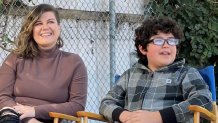
“Jack is like one of the most special and unique human beings that I’ve ever met,” Martin told NBC 7. “And I have the greatest pleasure of being his mom. But we have dealt with a lot of mental health issues since he was a really young boy.”
Jack, 11, has been diagnosed with Attention-Deficit/Hyperactivity Disorder (ADHD) and Disruptive Mood Dysregulation Disorder (DMDD). Jack’s mom said he has a lot of trouble regulating his mood.
“His brain will flip, like something will happen, and he’ll be in flight or fight mode. And more often than not, it’s fight, which puts us both in situations we don’t want to be in,” Martin explained.
“It’s just really frustrating for all these things to happen, and I have no control over it,” Jack said. “And when I do try to control it something always goes wrong.”
San Diegans can click here for a list of mental health resources available in the region.
Martin said Jack’s most recent mental health crisis ended with her son in the emergency room at Rady Children's hospital where he waited days for a bed and the care he needed.
“It was absolutely a traumatic experience for him and for me," Martin explained.
Martin said she doesn’t blame Rady Children’s Hospital. She blames the entire mental health care system.
“When it comes to mental health care, San Diego is lacking,” she said.
A spokesperson for Rady Children’s Hospital would not comment specifically on Jack’s care, but said the hospital -- like many others in the region -- is facing an escalating challenge when it comes to mental health care.
"Our region and our nation are facing an escalating mental health crisis with our young people that can push existing resources to their limits,” a statement from the hospital read in part. “Rady Children’s is urgently addressing the situation by investing in our dedicated psychiatric emergency department and our inpatient mental and behavioral health unit.”
Martin and Jack’s emergency room experience is not isolated.
An NBC 7 investigation found in the past eight years, behavioral health visits to the emergency department at Rady Children’s Hospital have gone up more than 1,700%.
The hospital said in addition to investing in its mental health care options, it is also partnering with the county and other agencies to find solutions.
Martin decided to tell her story openly because she wants to help break the stigma associated with mental health illnesses.
I truly believe that the stigma itself is the reason why we don’t have the services we have. People are afraid to talk about it. People are afraid to speak up.
Lauren Leigh Martin
Mental health challenges can appear at any age.
In any given year, 1 in 5 adults will face some kind of mental health challenge, according to the National Alliance on Mental Illness (NAMI). During the pandemic, however, NAMI found that number jumped to 1 in 3 adults.
“Pretty much you or someone you know deals with mental illness in some form or another, whether it’s themselves or someone they know,” Martin said. “And this is a human issue."
The Anderson family understands this too well.
Clarissa Anderson and Chloe Roston
Clarissa Anderson said she and her fraternal twin sister Chloe Roston just had one another for big chunks of their childhood.
The sisters faced some very rough times together, Anderson explained, including a traumatic period in foster care. Anderson is convinced the stretch of time in foster care contributed to her sister's mental health challenges.
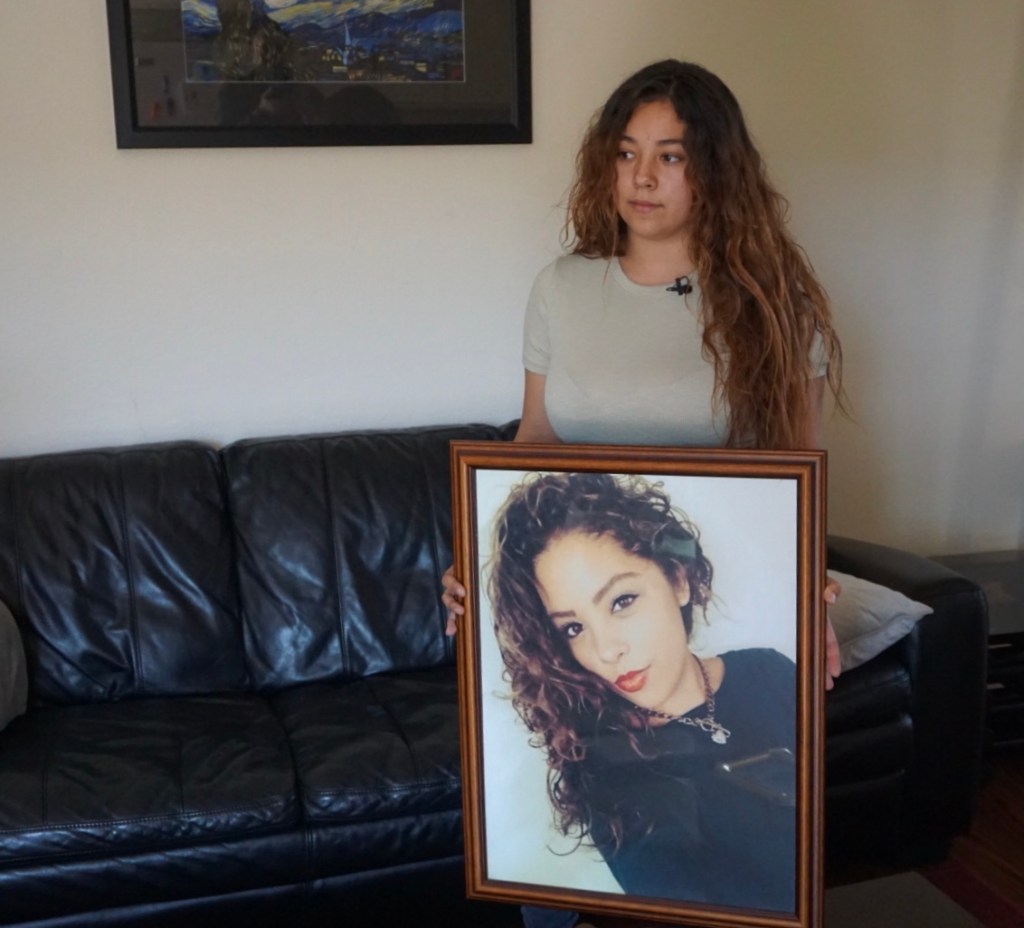 NBC 7
NBC 7“Her good times were so, like, lovable. She was goofy and so outgoing and just the life of the party,” Anderson told NBC 7. “But she was really struggling.”
The twins eventually returned to live with their mother, Maria Spivey, who worked as a bus driver and had health insurance. But even then, the family said finding and managing treatment for Roston’s mental health issues was extremely difficult.
“My mom missed work. So she couldn't help pick up the bills a lot,” Anderson said. “She's also frustrated that she's running out of resources to help my sister.”
Anderson said in 2012, Roston attempted suicide for the first time. Roston survived and spent time at a treatment center.
“All they did was put her in a confinement room with no windows,” Anderson said. “And they medicated her till she fell asleep.”
The family said they could never get one-on-one counseling through their health insurance.
“They prioritize physical well-being over mental because it's something that's physical, we can see it. We know it needs to be treated immediately -- their gushing blood, you know, but we can't see somebody's mental state,“ Anderson explained.
In 2014, Anderson said she was called home during the middle of a school day. She arrived home to see police cars in the driveway -- a moment she said she will never forget. Anderson knew something was wrong with her sister.
"I figured she just had another outburst and she was going to jail for real this time. But then I see my mom, and my mom was crying,” Anderson remembered. That’s when she learned her twin sister had died by suicide.
After Roston took her own life, Spivey joined other families in a lawsuit filed in 2013 against their healthcare provider, Kaiser Foundation Health Plan. Spivey felt Kaiser was responsible for her daughter’s lack of care.
Spivey's attorney said the case has had a long and arduous path through the court system. A judge recently dismissed the lawsuit on grounds there was a lack of evidence to support the claims, and now the families are appealing.
A spokesperson for Kaiser Foundation Health Plan said in part, "We remain deeply sympathetic to the loss that the Spivey family has experienced… The allegations in this case have been reviewed extensively and there is no substantiation that this tragic event was the result of inadequate access to mental health services… We remain deeply committed to providing timely access to care ..."
Meanwhile, Anderson hopes sharing her sister’s story might help at least one family going through something similar.
“The best advice that I could give anybody is to just fight. If you know that something is not right and if you know that somebody is having a hard time, don't allow them to ignore it just when they have their easy days, you know? Because there are hard days that hit when they feel so alone," she said.
Angel Solis
Angel Solis loves to sing, and his parents said he found his voice at the San Diego Center for Children.
At an early age, Angel was diagnosed with ADHD and obsessive-compulsive disorder (OCD). But his parents Gabby and Miguel Solis said things got really difficult when their son went to middle school.
“He was basically lost the first day,” his father said. “And then from there, it was basically downhill.”
“It's really hard because we were in a really bad situation before,” Gabby Solis said. “Every single day, everybody's crying in the house because we saw him suffering.”
Photos: The Faces of NBC 7 ‘s ‘BREAKDOWN'
Angel’s parents said he was bullied at school and no one seemed to be able to help, so they decided to see if the San Diego Center for Children could assist.
The San Diego Center for Children is a nonprofit that provides a range of therapeutic and other services for children with mental, emotional and behavioral disorders.
For the Solis family, the services were a perfect fit. They said Angel began to blossom when he took part in the music programs available at the center.
I think that we need to understand that we're really experiencing a crisis.
Moises Baron, President and CEO of the San Diego Center for Children
Baron is a vocal advocate for changing the mental health care system, and especially focusing on early childhood intervention.
About 20% to 25% of youth may experience a mental, emotional or behavioral disorder, and about 80% of them are not getting the help they need, according to Baron. And about half of mental health challenges manifest by the time someone is 14 years old.
Early childhood intervention is key, “So that it doesn't manifest later in life into bigger problems," Baron said.
Angel Solis agrees.
“If you don't get what you need, then you'll be lost by the time you're 18. And so it's really important for you to be able to get that support that you need. When it's not there it completely messes up how you feel your emotions and just how you perceive things,” he said.
Baron believes the need for services will only increase post-pandemic. In recent months, the center has added several new, major mental health care services, including an intensive outpatient program, intensive in-home family services and a collaboration with pediatric providers to be able to quickly respond to children facing mental health challenges.
Do you or your family need help? There are resources standing by. NBC 7 has put together a list of organizations in San Diego County that are there for you. To learn more, click here.
Watch BREAKDOWN - Part II on Thursday at 6 p.m. on NBC 7 , or watch it here after it airs.
